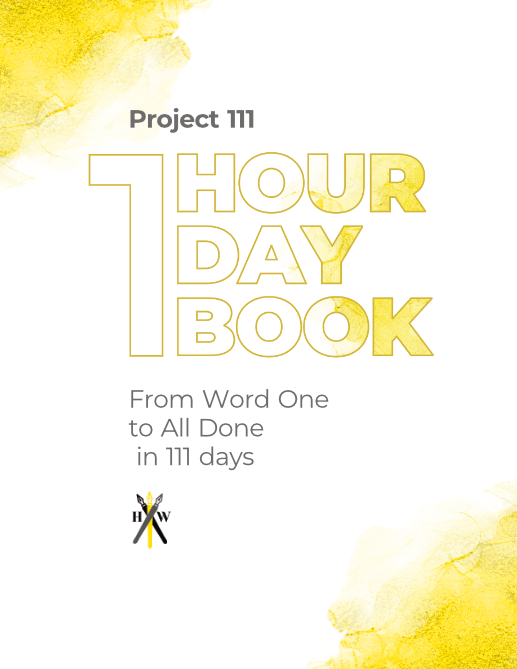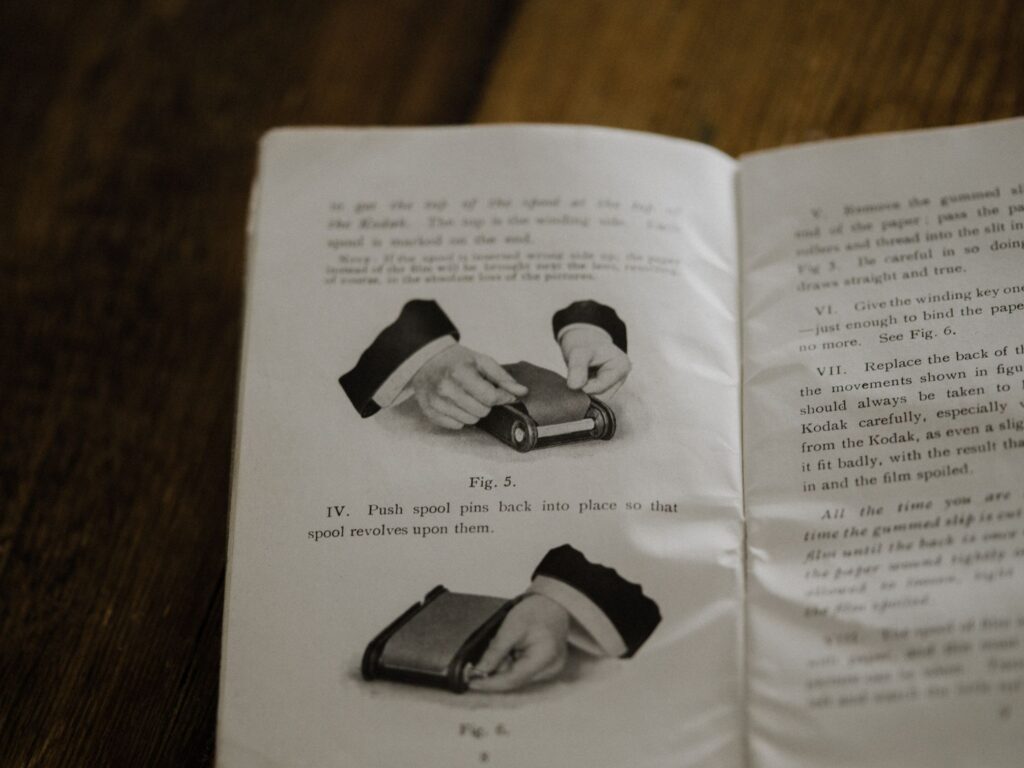Here at Habit Writing, we love to discuss creative writing, but we know that becoming a “writer” can seem inaccessible and almost impossible. Especially when participating in creative writing, we think careers in writing are just authorship or publication.
The truth is that being a “writer” for a career is actually way easier to achieve than we give it credit for. Though this often means you won’t be writing about elves and dragons, you will get to exercise that part of your brain that longs to get its ideas out into readable words.
Writing as a job can be incredibly fulfilling and can translate into a plethora of industries and fields. Veering away from our usual content, we’ll discuss some different careers in writing and how you can start prepping for that dream job (while you write for fun on the side of course).
Table of Contents
Content Writing

One of the most popular careers in writing right now is content writing. Having an internet presence is paramount for every business and content writing works towards this end.
The idea is to engage with users and guide them towards the business. A content writer will plan, write, and edit any number of pieces, but the most popular form of content writing is creating and publishing articles.
The majority of businesses will have content writers write helpful articles that they’ve optimized for Google’s search engine. This process will allow the business’s article to appear early in the results list and reach people who they can help.
Basically, these articles (content) are thrown onto the internet, and they organically bring people toward the business. They usually aren’t advertised, but because of the SEO (search engine optimization) they can reach high volumes of people.
Articles aren’t the only types of content these writers will create, however. Oftentimes, content writers will make newsletters, video scripts, social media posts, or anything a copywriter might do.
Check out this article on how to become one and the key differences between content writing and copywriting.
Freelance

Working in freelance can be incredibly fun, gratifying, and variable. Freelance writing essentially enables a writer to take whatever jobs they find appealing and work on writing that project. Plus, you can write barefoot at your remote writing job, so that’s rad.
Freelance writing can look like any number of things: creative, technical, content, copy, press release, grant proposal, or whatever you choose to excel in.
This type of career will appeal to anyone who likes to take control of their time and work with certain types of people. But the draw backs can seem hefty. Being a freelance writer will require you to market yourself and won’t offer the same immediate stability of other writing careers where you receive benefits and structure.
That being said, the freedom found in freelance work is almost unattainable in other capacities.
If this sounds good to you, there are some steps you can take to become a freelance writer.
1. Inundate yourself. Figure out what a freelance job might look like for you. Visit websites of freelance writers, read freelance work, and explore businesses who might employ a freelance writer.
2. Fit your writing. You’re obviously a great writer because you’ve been keeping up with Habit Writing (right?), but your style of writing may differ from what a particular job or field of writing expects from you.
For example, your delicate yet loquacious descriptions of the ice planet your 6,000 page fantasy series may not use the same writing techniques as the product descriptions of a handmade lawn chair.
Learn what type of writing is expected of the job you want to have and practice that. Read as much of that writing style as you can and emulate it in your own work.
3. Learn the Avenues. Even if you decide to market yourself and become your own business, it’s helpful to follow and understand the different means of finding writing work.
Depending on the type of writing you’re doing (fiction or non-fiction), the rise in remote work has paved the way for platforms that connect suppliers with demanders.
Some examples of freelance avenues are fiverr, indeed, FlexJobs, and more found in this article.
If you find that you would rather not use these avenues and have had success alone, it’s helpful still to examine these places to see what the market trends look like and other useful information.
4. Craft a Website. A website is one of your most important assets as a freelance writer. It functions as your portfolio and means of marketing yourself. By having a portfolio available for your customers, they can easily scroll through examples of your work and see if you’d be a good match. Having a stylish website can significantly up your chances of landing that job.
The website will also provide the means of marketing yourself. You should have a page detailing the services you offer, an about you page with your experiences, and a way to contact you (in addition to the aforementioned portfolio).
If you fall down the SEO rabbit hole, you could optimize your page to bring you organic traction that could land you jobs without even looking for them!
5. Write, write, write. Just because you’ve crushed a few of your commissions and feel like you’re killing it doesn’t mean you should give up on practice or writing in a way that rewards your creativity.
Remember what made you love writing in the first place and keep up with that too. Every form of writing can teach you something that informs your other methods. Write for fun and write often.

Our 84-page book planner and 111 day writing course.
(Online) Reporter

The life and expectations of a reporter have changed drastically since the internet reared its beautiful, ugly head. When you hear reporter, you may still think of someone holding a microphone to interview the person standing in the middle of a tornado, but more often than not, a reporter will have online roots.
A reporter’s job is to keep up to date on whatever your company specializes in. Video game, tech, food, product, whatever-you-want reporters are needed for online magazines, journals, newspapers and more.
The job of a reporter may appeal to anyone who already stays up to date on whatever niche interest they have. For instance, if you follow every JRPG released for Nintendo, you could likely land a job as a game reporter.
Whatever your interests, a reporter job likely exists in that field.
Most reporter jobs will require a Bachelor’s degree of some kind, but many of them prefer merit-based writing skills. So if you can show your mettle and flex your chops despite your degree, you may be able to secure the reporting job of your choice.
Social Media

As crazy as it may seem, social media writing careers exist in a burgeoning and flourishing field. It’s becoming increasingly difficult for businesses to expand without any sort of presence in social media.
A social media manager’s job is to create content for a business, whether that’s in posts or comments, to garner attention and engagement. This kind of manager takes their writing skills (mixed with social media savvy) to connect with potential customers and bring them towards whatever good or service the company is offering.
A creative writer may enjoy the process of reaching an audience in such a casual space.
This type of job has the potential to aid you in your own writing career as you learn how to professionally navigate social media.
Many more informed people have created checklists on how to get a job doing social media. For example, here’s an article you might check out.
Copywriting

A copywriting job may suit creative writing enthusiasts very well, given their attention to detail and ability to use words to convey emotion.
What a copywriter does is help a business with more bite-sized pieces of writing based on the research they find on market trends. This may look like developing slogans, providing product descriptions, writing the words to a jingle, or creating blog posts.
The variety of a copywriting job is impressive and takes a creative mind to think through what would best garner a customer’s attention and direct them to the whatever service the company provides.
Copywriting as a writing career may be especially good, because while there is writing involved, you don’t exhaust yourself with longer forms of writing. You also get to flex your creative muscles which will translate to your personal creative endeavors.
Sometimes a copywriter will also take on the role of a content writer, in which they create content such as blog posts or video scripts to increase traffic to a website. More senior copywriters typically take on the role of being the “ideas guy”, and can likely avoid such writing.
The tricky part about getting a copywriting job is the barrier to entry. Most positions require a few years as a copywriter before getting the job.
Some ways to get that experience could be through an internship or offering copywriting to a low budget website or e-shop. This will give you important experience in the field and can work on a resume. As with all other jobs, it’s important to do your research and learn the expectations of the field and practice getting better at the skill.
Technical Writing

Technical writing, as with almost all careers in writing, is a broad field. You can have projects that vary from writing an index to creating instruction manuals for a software program. All sorts of fields need writers to be as clear and straightforward as possible to ensure that their products are used correctly.
You may like this kind of job if your writing skill prioritizes clarity, and you don’t mind a general lack of creativity. This career will suit anyone who loves clacking on a keyboard and enjoys the act of seeing a blank page filling up.
One of the benefits of this type of career is that despite the amount of writing you do, it may not wear out your desire to do creative writing after a day of work. While you’re (somewhat) mindlessly writing about the steps it takes to construct a refrigerator, your creative brain can develop your next amazing chapter or story, and you can keep the desire to write it out.
The US Bureau of Labor Statistics stated that the median salary of technical writers was $74,650 in 2020. This career path can definitely lead to some lucrative jobs and let you save up to support a potential creative writing career later on.
As with most writing jobs, recruiters typically require a bachelor’s degree. Most desirable candidates will have at least some experience in the field they’re writing for. This can look like an understanding of some scientific topic, a latent need to set up bookshelves, or experience reading indexes.
Once you’ve landed a job in the field, your salary can increase pretty dramatically in a few years as you gain more experience in writing clearly and carefully. If you have any experience with coding, there’s a drastic need for API technical writers around the world, and they can make pretty substantial money.
Conclusion

This list is in no means exhaustive. Writing is a skill that every business could use, and if you’re able to make a good case for a job that hasn’t been done yet, you can definitely give it a shot. This list is meant to give you an idea of what is out there.
Careers in writing are versatile and combat the mundane. Making writing your job can give you a sense of fulfillment that other types of work might not be able to. Also, remember that all sorts of writing can make your other writing even better.
Another thing to keep in mind is that this list forgot one of the most important careers in writing: becoming an author. There’s no clear path to authorship, regardless of what people say. Sure, you can take the standard paths and try them out, but there are no guarantees.
The best thing to do to become an author is to hone your craft and always be practicing. Storytelling is a learnable skill, and we hope to help you on your journey towards telling your best ones.
One of the best places to start is to find the right idea. Give this article a shot, and you should be able to come up with a stellar idea.
gavinwride
Gavin is a fantasy author, short story enthusiast, and nature lover. When he’s not reading, writing, or exploring the outdoors, he is likely playing games. His board game collection is probably too big for someone living in a small apartment, and he has enough yet-to-be-played video games to fill a lifetime. His favorite book is "The Name of the Wind". His favorite author is Edward Abbey. His favorite game is "Dark Souls III", and he’d be more than happy to spend the day talking about lore, bosses, and game mechanics.
Our 84-page book planner and 111 day writing course.
